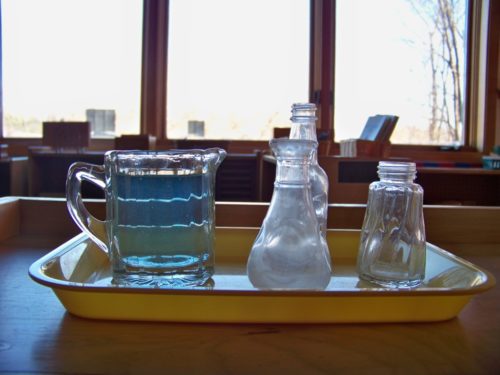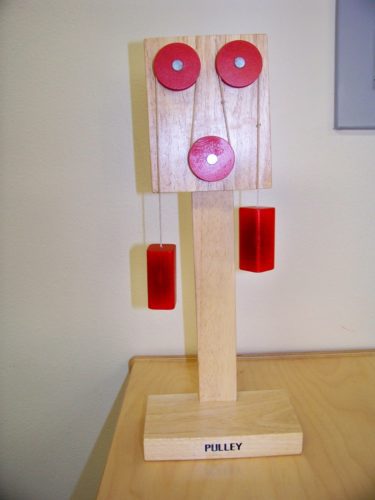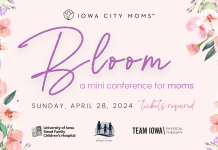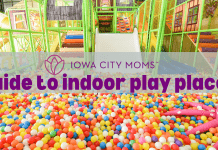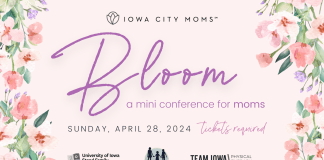Over the last several years, there has been a dramatic push to enhance science, technology, engineering, and mathematics (STEM) programs in schools. Public and private educators alike, along with policy makers, have created initiatives that have called for an increase in hands-on discovery and practice of STEM concepts.
But what is STEM all about exactly? It is more of a philosophy, really–a way of thinking about how educators and parents can help students create links between concepts and encouraging them to think in a more connected, holistic way. Young children need to be allowed to explore sizes, shapes, patterns, and quantities in their natural environment.
In this way, children can learn concepts through discovery and manipulation, all in ways that are naturally engaging to them.
Probably one of the simplest examples of this is something that you likely already do with your young child: cooking at home. Several math and science concepts can be learned while cooking with your child. Measurements and volume, properties of matter, the role of temperature–all can be taught and explored in the kitchen.
Recently, Montessori educators have recognized that they may already do more than a conventional school environment when it comes to STEM-like content and practice, and that they do more to integrate these concepts within a holistic curriculum. Dr. Montessori observed that young children are naturally curious and thirsty for knowledge. She recognized the young child’s need to absorb information about the world around them. She believed that hands-on, real-life experiences with real objects should always proceed before learning the names or looking at pictures of things. They wonder what things are called, how they work, and why things happen. Dr. Montessori believed the secret is to tap into their natural and innate curiosity.
The foundations of scientific learning and critical thinking skills lie in inquiry and exploration. Both Montessori and STEM programs emphasize developing these skills: the tools of active learning. Fostering curiosity in this way can promote that child in becoming a lifelong learner.
So how do Montessori classrooms practice STEM everyday?
When we break down the STEM acronym, we can easily see how STEM concepts are applied throughout the Montessori environment. For example, science activities may include planting a seed and then observing its growth of the roots, sprout, and leaves of the young plant. It may also involve the children creating a real working water-cycle that they can then observe water being evaporated and droplets forming and falling from the top. Exploration with volume occur in the Practical Life environment as children also practice mastering coordination and control of movement.
Technology may occur by exploring simple machines like gears, wheels, pulleys.
Engineering appears in the Sensorial area, grading and building designs with the Pink Cubes and the Brown Stairs.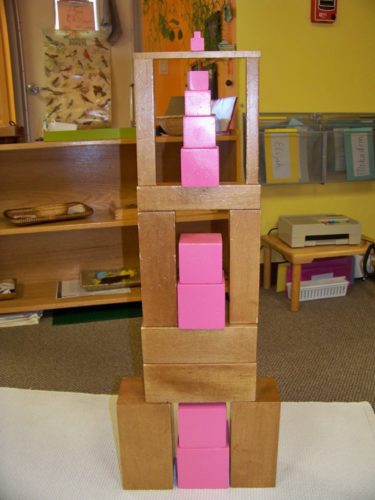
In Mathematics, matching, patterning, and sorting activities are ample. Practicing one-to-one ratio and counting quantity values procures learning symbols. For example, in Montessori classrooms, the Red and Blue Rods grow in length as the child learns to count 1-10. The Golden Bead material is often made of glass, adding substantial weight to the material as the children handle a unit bead, ten bar, hundred square, and one thousand cube.
The research is quite clear that the best practice in early childhood education is to allow children to be active, engaged, and take the lead in their own learning.
A prepared environment where children are investigating, identifying objects, making comparisons, and sharing discoveries early in life builds skills and interests that serve children on into adulthood. Dr. Montessori made these observations over 100 years ago, and they remain relevant today.
If you would like more information about Montessori education, please contact the Montessori School of Iowa City at (319)338-9650 or visit our website.
This is a sponsored post. ICMB was compensated for sharing this piece. However, we love connecting our readers with people and organizations that are doing good in our community, and we think you will find this information helpful and informative!



